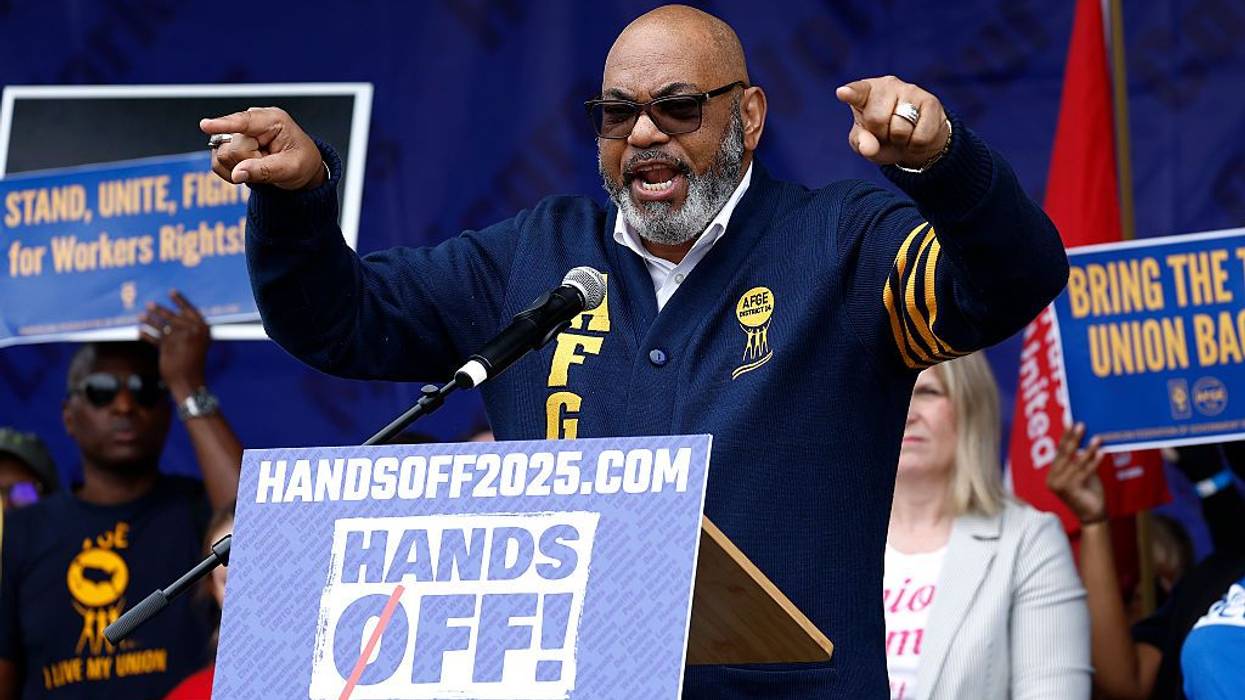‘We Are Not Letting Up’: Advocates Say Much More Work to Do as Bovino Exits Minnesota
The ACLU said it plans to keep up the pressure and won’t stop “until ICE and CBP stop terrorizing our community.”
Border Patrol Commander-at-Large Gregory Bovino has reportedly been pushed out of his role leading President Donald Trump's mass deportation campaign amid a torrent of backlash against immigration agents' lawless behavior in Minnesota in recent weeks, particularly the killings of Alex Pretti and Renee Good in Minneapolis this month.
The Atlantic, which was the first to report Bovino's departure, describes it as one of the first times that a White House prone to quadrupling down on even its most outrageous excesses has buckled in the face of public outrage, with Trump reportedly mulling "a tactical shift in the administration’s mass deportation campaign."
This has not only led to Bovino—who baselessly claimed Pretti intended to "massacre law enforcement"—being demoted and sent to his former job in El Centro, California, where he is expected to retire. Some of the administration's other, more aggressive anti-immigrant zealots, including Homeland Security Secretary Kristi Noem and her de facto chief of staff, Corey Lewandowski, are also reportedly on the hot seat.
"To be clear, this is a victory, which was won by ordinary people putting their lives on the line in the streets of Minneapolis while almost all their elected leaders kept quiet or made only muted criticism," said Jeet Heer, a writer for the Nation.
But the American Civil Liberties Union (ACLU), which has been at the forefront of legal resistance to the Trump administration's attacks on civil rights, warned on Monday evening that while ousting the face of the operation represented "progress," it must not breed complacency.
A spokesperson for the group noted in a video posted to social media that Bovino's demotion came shortly after the announcement that some Customs and Border Protection (CBP) agents were being withdrawn from Minneapolis "as a result of public pushback," in response to its and Immigration and Customs Enforcement's (ICE) tactics.
"These are clear signals that the Trump administration is feeling our pressure," they said. "This is progress, but we are not letting up until ICE and CBP stop terrorizing our community."
"Part of how we achieve this is by telling our senators to vote no this week on a bill that would continue funding ICE without doing anything to keep our community safe," they continued.
Ezra Levin, the co-director of the progressive advocacy group Indivisible, said that the exit of Bovino shows that "the people of Minnesota won and the regime is losing."
However, he said that while "we are all happy to say good riddance to Greg Bovino... our work is still not over."
"This was never about one individual," Levin said. "It is about a system of terror driven by Donald Trump and his regime. The people on the streets are doing their part, but it is up to Democrats to hold the line and follow through. The DHS funding bill cannot pass in its current form, and there must be real constraints and accountability for DHS moving forward."
After Pretti, a 37-year-old intensive care unit nurse, was gunned down this past weekend by a band of federal agents—whose identities the Trump administration has still refused to release to the public and has allowed to remain on duty—Democratic lawmakers have largely stated their intention to block a bill that would fund the government after a January 30 deadline.
That bill—which narrowly passed the House last week with seven Democrats in support after party leadership refused to whip votes against the measure—provides another $64.4 billion to the Department of Homeland Security (DHS), including another $10 billion for ICE. This is on top of the $170 billion in new DHS funding approved last summer when Congress passed Trump's One Big Beautiful Bill Act.
Zeteo reports that as of Monday, 44 Democrats have stated their intention to vote against the bill. With seven Democrats needed to vote for the legislation in addition to all 53 Republicans, this is enough for it to be blocked. According to the report:
Senate Democrats appear to have coalesced around several demands for cleaning up ICE. While the exact language isn’t final, Democrats are prepared to demand the following, according to the [American] Prospect: an independent, federal-state investigation of the murders by DHS in Minnesota and agents’ tactics; a ban on ICE agents wearing face masks; a requirement that ICE agents wear body cameras; an end to arrest quotas and agents’ roving patrols, where they racially profile people; and a prohibition on agents illegally and unconstitutionally entering people’s homes based on “administrative warrants” that haven’t been signed by an actual judge.
The American Federation of Government Employees (AFGE), America's largest federal workers union, of which Pretti was a member, said that other Trump administration officials who smeared his name in order to defend his killing must also face accountability.
“In the immediate aftermath of Alex’s killing, DHS Secretary Kristi Noem betrayed the public trust by slandering the good name of our union brother and calling him a 'domestic terrorist,'" said AFGE national president Everett Kelley. "Alex Pretti was a patriotic ICU nurse at a [Department of Veterans Affairs] hospital who devoted his life to serving America’s veterans. That claim was reckless, defamatory, and unsupported by the facts. Noem was preceded in this false statement by Stephen Miller, Deputy White House Chief of Staff, who is also the architect of the chaotic and failed immigration policy in Minnesota."
"Our demand is clear: Department of Homeland Security Secretary Kristi Noem, who was responsible for carrying out the policy that led to Alex’s needless killing, and Deputy White House Chief of Staff Stephen Miller, the architect of that policy, must resign immediately," Kelley continued. "If they refuse, President Trump must dismiss them."


